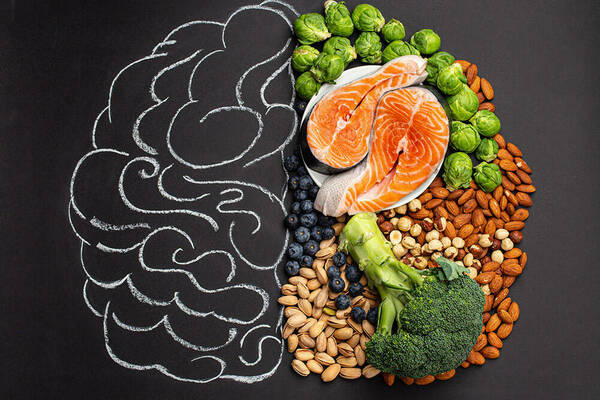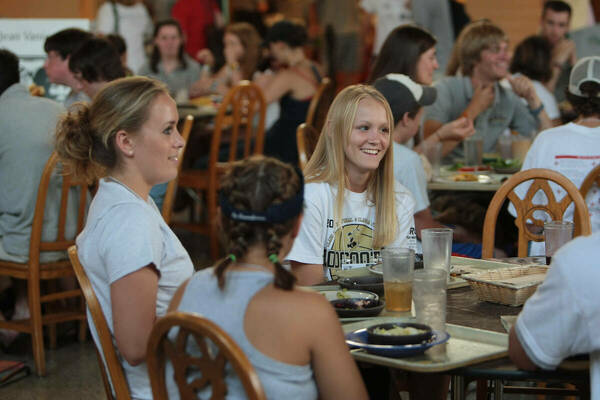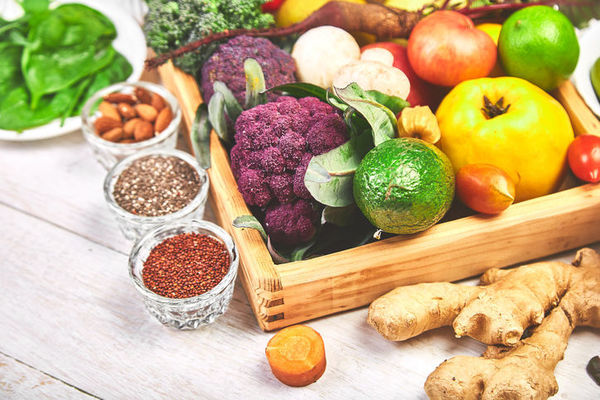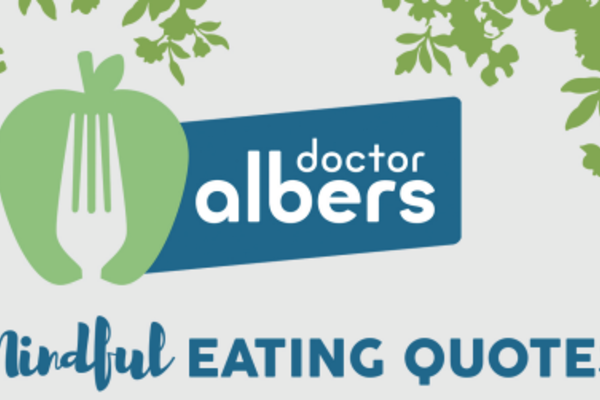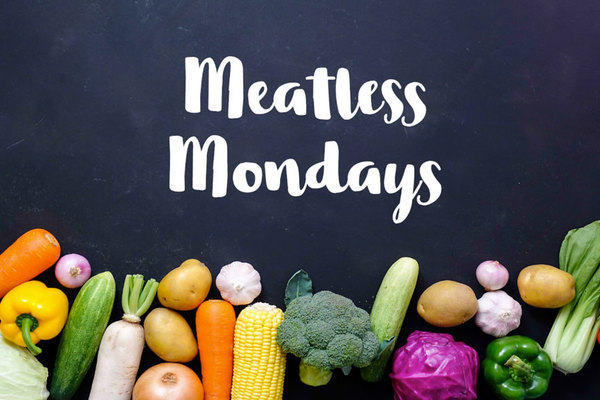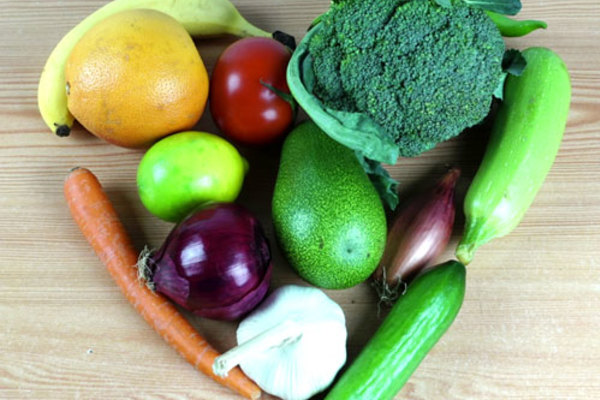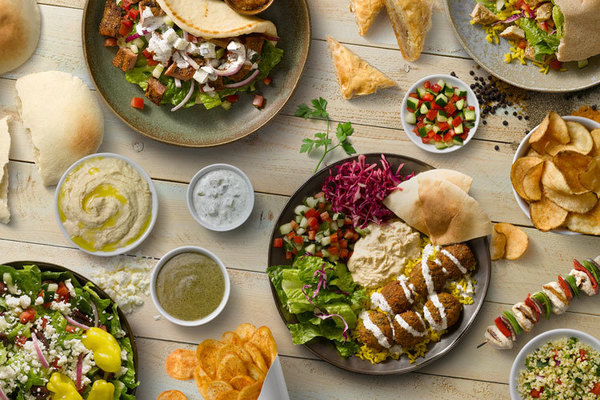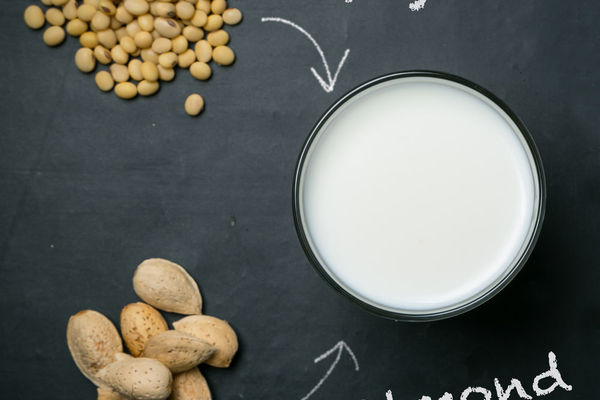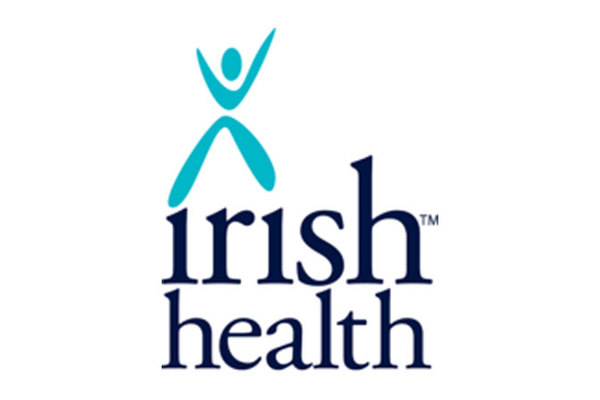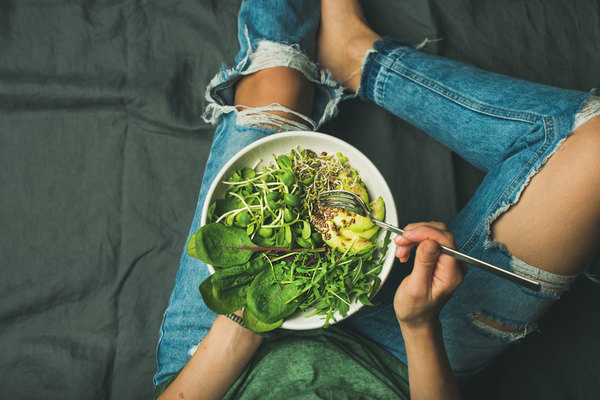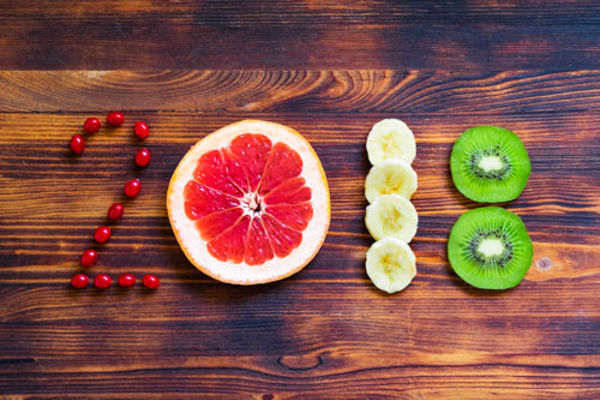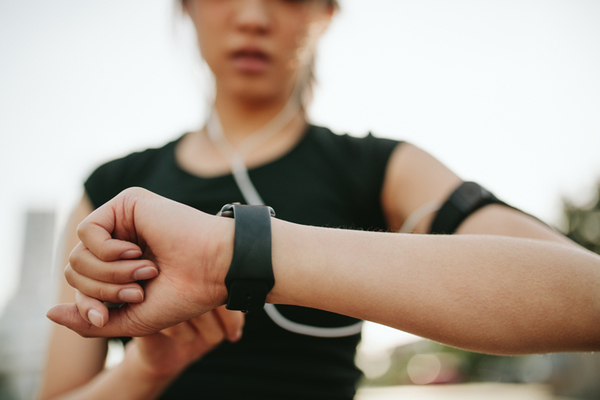News » Wellness Blog
How to Get More Vegetables in Your Diet
Advice from Mark Harmon, MD
Make Flaxseed a Favorite Dietary Addition
Flaxseed is available in both dining halls and offers a myriad of health benefits.
A Hack for Better Digestion
Dr. Mark Hyman discusses the digestive benefits of slowing down and enjoying your food.
Is All this Water Necessary?
Do we really need 8 ounces a day?
The Microbiome - a Critical Player in Whole Body Health
As we greet 2021 with renewed hope of turning the corner on this pandemic, consideration for the health of our gut microbiome takes on added importance.
Healthful Strategies in the Face of Covid-19
As we all come back together for a Notre Dame semester like no other, one collective goal we have is to stay strong, stay well, and should we be exposed or become ill from Covid-19, give our body the tools to rebound quickly.
How are you doing with your New Year's Resolutions? Thoughts from Body Kindness
A few tips from author and dietitian Rebecca Scirtchfield on Body Kindness in the new year.
Does an apple a day really keep the doctor away?
Jocie Antonelli, Nutrition Program Manager for Campus Dining investigates the old adage "An apple a day keeps the doctor away" to see how true it actually is.
10 Mindful Eating Quotes
Check out 10 Mindful Eating Quotes from Dr. Susan Albers.
Beat the Heat with Your Nutrition
We are in the height of summer and most places in the country, including South Bend, are also at the height of the thermometer. So aside from air conditioning and common sense, there are some ways that your eating and drinking habits can help.
Say Yes to the Yolk
See what the latest research says about the benefits of consuming the whole egg instead of just the whites.
Should You Think Twice About That Straw?
Straws—How bad could they be? Our staff dietitian offers her perspective from both a sustainability as well as a health standpoint.
Meatless Mondays
Learn more about the impact of cutting out meat from your diet one day each week.
A Healthier You in 2020
See what our Nutrition Services Program Director has to say about making small changes that have a big impact!
Mediterranean Diet
Learn about the health benefits of the Mediterranean style of eating from Jocie Antonelli, Nutrition Services Program Director for Campus Dining.
Almond Milk or Soy Milk—Which is the Healthier Alternative?
See what Jocie Antonelli, Program Director of Nutrition Services for Campus Dining, has to say about dairy milk alternatives.
Join Us on October 16 and 17 for Irish Health!
Visit over 50 benefits vendors and campus partners.
Kombucha: Health or Hype?
So what’s the big deal; why does it have such a loyal group of consumers and why are new ones turned onto it everyday?
Navigating the Dining Halls
Arriving at North Dining Hall or South Dining Hall and deciding what to eat can be a daunting task, especially at lunchtime when classes have just let out. Having a gameplan can result in healthier choices.
Summer and Exercise
How much exercise is enough? See what Jocie Antonelli, Program Director of Nutrition Services for Campus Dining has to say...
Are You Eating Enough?
Simply put, if you are not eating enough food, you are depriving your body of enough fuel and important nutrients that can wreak havoc on your health, metabolism, and hormones.
Strong Bones...Need Milk?
Is milk really necessary for strong bones?
A Healthier You in 2018
If one of your goals is to achieve better health, you can make little tweaks, here and there, for a big impact.
Vitamin D: Your Ticket to Better Health
It’s that time of year, leaves have fallen, daylight hours are shorter, and the temperatures have dropped. It’s also that time of year we call “cold and flu season”. One thing that can help you from becoming a victim is vitamin D.
How are you going to spend your 1400 minutes today?
Between classes, clubs, practices, studying, meetings, eating, sleeping and socializing, who possibly has time to exercise?
Managing Hunger

Do you have a love/hate relationship with your appetite? Do you have some days where you eat breakfast and find yourself hungry an hour or two later? Do you have other days where you don’t feel hungry until well…
Mucha Matcha
Matcha, which means powdered tea, is superior to regular green tea for the simple fact that you consume the whole tea leaf.
Here’s to the Pulse
Ever heard of the food-term “pulse”? No, we aren’t talking about your blood pressure here; we are talking about dried beans, lentils, chickpeas, and peas. If you are unfamiliar with pulses, you aren’t alone.
Boosting Muscle and Performance
Whether you are an athlete diligently training for an event, or just a weekend warrior, there are things you can tweak or add to your diet that have been proven to boost performance or enhance specific health goals.
